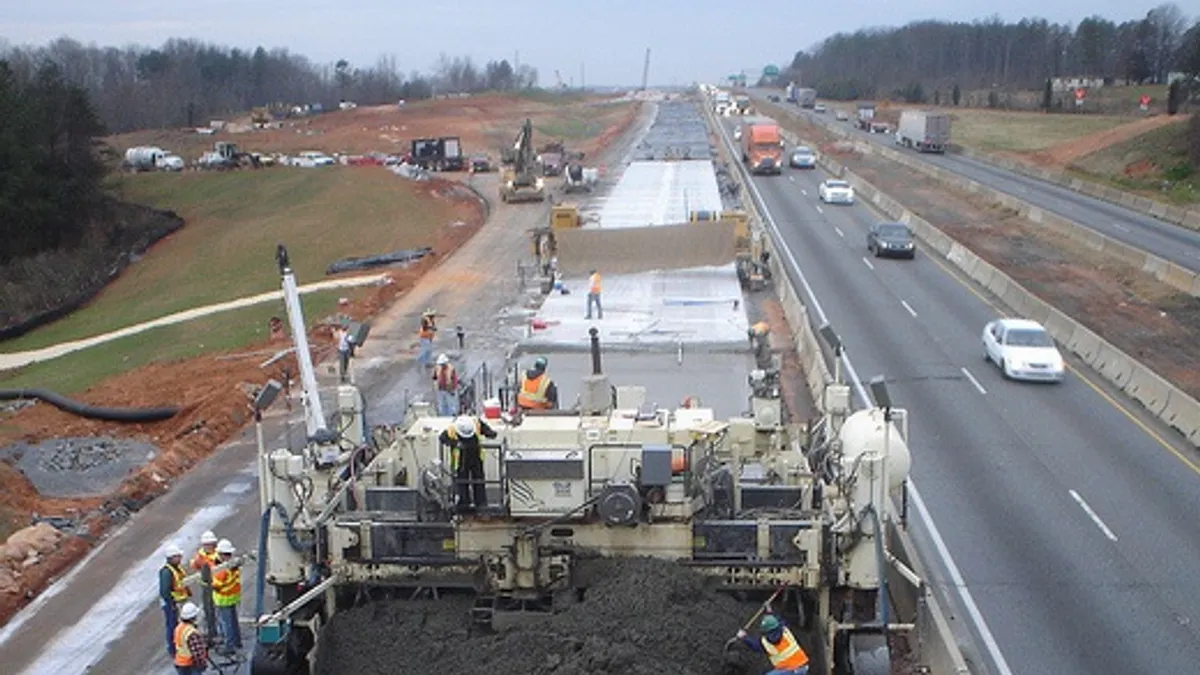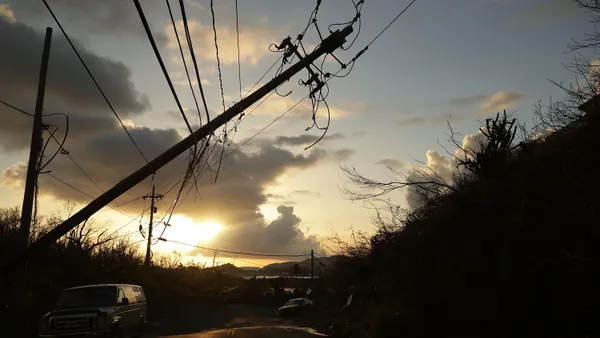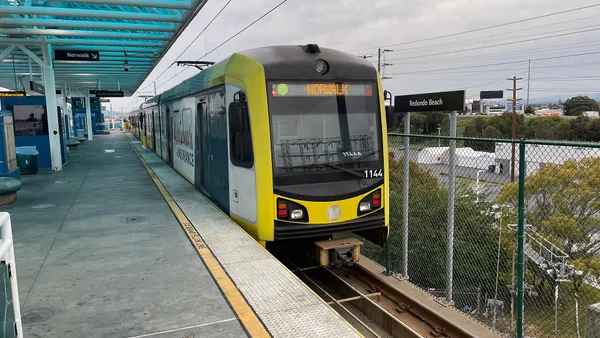UPDATE: The North Carolina Department of Transportation officially listed DeVere Construction in default of its contract. State DOT officials said that because a performance bond was required for the project, the bonding company will now have the responsibility to find a new contractor for the job.
State DOT spokesperson Jordan-Ashley Walker said in a statement, "The Department will not pay more than originally bid as a result of this issue," according to NBC Charlotte. Walker said the DOT wants a new contractor to take over the project by the end of March.
Dive Brief:
- The North Carolina Department of Transportation said it would declare Michigan-based highway contractor DeVere Construction in default of its contract on four major highway projects if the contractor did not resume work by Monday, the Triangle Business Journal reported.
- DeVere, which called NCDOT’s payment process "broken," pulled all workers and equipment off NCDOT projects "pending resolution of sizable claims and the release of substantial contract balances currently withheld" by NCDOT, according to the Charlotte Observer.
- NCDOT's demands do not include two other projects DeVere is currently working on, the Business Journal reported. NCDOT officials said they barred DeVere from bidding on highway work in 2014 when the company fell behind on other state infrastructure projects.
Dive Insight:
"We are a second generation, family owned construction company and are proud of our work. The decision to demobilize was not an easy one, but there is a limit to our patience," Richard Crittenden, president of DeVere Construction, told the Business Journal. "The NCDOT claim process is broken. I fully anticipate DeVere Construction will prevail and recover the monies properly due and owing by the NCDOT."
In a statement, Steve Abbott, communications manager of NCDOT, said the agency’s focus is on timely completion of projects, and DeVere should expect financial consequences if it is not prepared to abide by the contract schedule, the Business Journal reported.
"We require payment and performance bonds on most of our projects to protect us as well as subcontractors and suppliers in these situations," he said. "Although there could be delays associated with the bonding company arranging for project completion, the department will not pay more than originally bid as a result of this issue."
An obligee on a surety bond, like NCDOT, usually doesn’t simply declare a company in breach of contract then the next day "arrange" for the bonding company to complete the work. Typically, NCDOT would file a claim and the bonding company would hold off on getting involved until all the dispute avenues in the contract between NCDOT and DeVere were exhausted.
At the very least, the bonding company will likely conduct a thorough investigation before writing a check. However, if the bonding company does go ahead and, for example, re-bid the project and pay for another company to do the work before a court determines who is at fault, they will most likely reserve the right to backcharge NCDOT for any money they put out in relation to the bond if a court decides in favor of DeVere.














